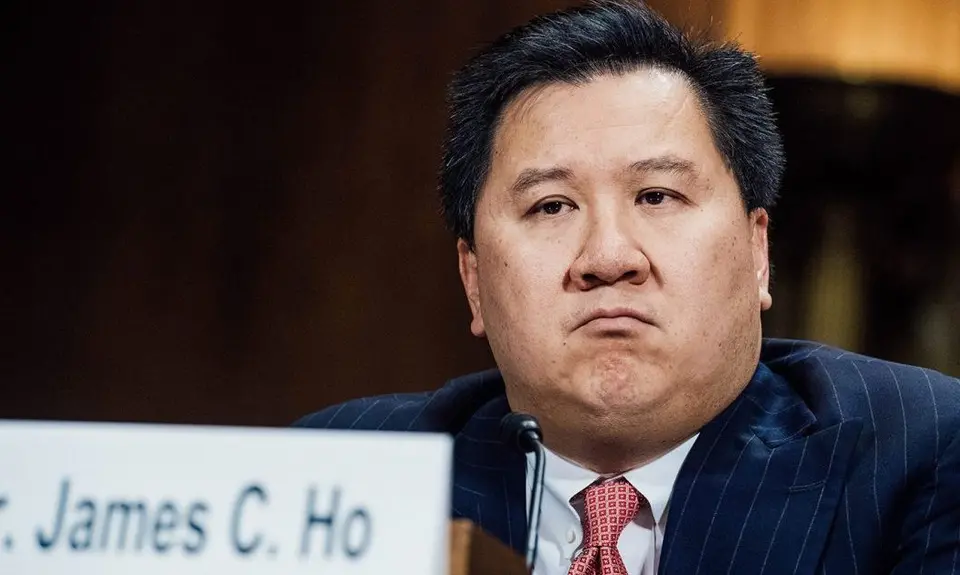“Confirmed Judges, Confirmed Fears” is a blog series documenting the harmful impact of President Trump’s judges on Americans’ rights and liberties. Cases in the series can be found by issue and by judge at this link.
Trump Fifth Circuit Judge James Ho tried to prevent a federal court from enforcing an arbitration award against a large corporation that was charged with refusing to accommodate and later discharging an employee with a disability. The majority in the January 2020 decision in Quezada v. Bechtel OG & C Construction Services, Inc. affirmed the lower court decision, but Ho argued in his dissent that the federal courts did not have jurisdiction over the case.
In August 2015, Nicole Quezada began working on a construction project for Bechtel. During that time, Quezada suffered from “peripheral edema” and “venous insufficiency,” conditions that cause “pain, swelling, and numbness in her extremities” that “impacted her sleep.” She was able to perform her job without any accommodations until December 2016, when she requested accommodations including “light duty” and “frequent restroom breaks.” Bechtel refused her requests and, according to Quezada, later forced her to accept a layoff.
As a condition of her employment, Quezada had signed an agreement to arbitrate any employment-related disputes with Bechtel. Following her discharge, both parties requested arbitration of her claim that the company had discriminated against her in violation of the Americans with Disabilities Act (ADA) when it refused her accommodations requests and improperly denied her overtime. Although not finding a violation of the ADA, the arbitrator did award more than $98,000, plus costs and attorneys’ fees, to Quezada because of Bechtel’s “treatment of her.”
The parties then went to federal court, where Bechtel tried to vacate or modify the award and Quezada sought to confirm and enforce it. Both the district court and the majority of the court of appeals ruled in favor of Quezada, but Ho dissented, asserting that neither the federal district court nor the court of appeals had jurisdiction over the case, despite Quezada’s and Bechtel’s beliefs to the contrary. He claimed this was based on the “text” of the Federal Arbitration Act (FAA), which gives federal courts jurisdiction to compel arbitration when the underlying dispute could have been brought in federal court, but does not explicitly confer such “look through” jurisdiction when it comes to confirming or vacating an award.
The majority strongly disagreed. In a 2009 ruling that federal courts have jurisdiction to compel arbitration, the majority pointed out, the Supreme Court relied not only on the specific language of the FAA, but also on “basic jurisdictional tenets and practical considerations.” Since then, the majority of federal courts of appeal had ruled that the ‘look through” principle also applies to motions to confirm or vacate an arbitration award. Otherwise, the majority explained, parties would be required to go through the “inefficient and formalistic process” of moving to compel arbitration in federal court before the arbitration starts, even if the parties agree, in order to “preserve federal jurisdiction” for a motion to vacate or confirm the award. This “bizarre jurisdictional triangle,” the court went on, would produce “the exact opposite” of the FAA’s goals that the sections of the law be “interpreted uniformly” and that arbitration agreements be effectively enforced.
If it had been up to Ho, however, Nicole Quezada would not have been able to enforce the arbitration award against Bechtel in federal court.
